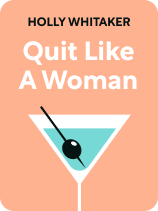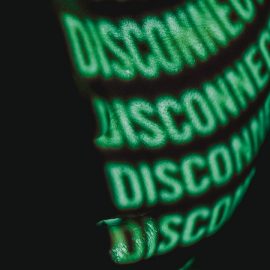

This article is an excerpt from the Shortform book guide to "Quit Like a Woman" by Holly Whitaker. Shortform has the world's best summaries and analyses of books you should be reading.
Like this article? Sign up for a free trial here.
What are the most common myths about alcoholism? What is the real truth about alcohol?
In Quit Like a Woman, Holly Whitaker claims that she and many people took so long to recognize their alcoholism because we’re conditioned to believe drinking is normal. In her book, she debunks the most dangerous myths about alcoholism.
Let’s explore these alcoholism myths and learn why they’re so harmful.
Myth #1: Alcohol Isn’t Bad for Us
According to Whitaker, alcohol companies invest heavily in marketing that encourages people to continue drinking. This marketing portrays drinking as a normal part of adult life. Particularly for women, alcohol companies stress the normalcy of drinking at every stage in life: motherhood (de-stressing with a post-bedtime drink), career years (happy hours with friends), and retirement (pampering yourself with wine and liquor).
Alcohol companies must market so heavily because most alcohol brands are owned by one of only 16 companies, so competition is fierce. In 2016, alcohol companies spent $2.3 billion on marketing and advertising in the US.
Whitaker adds that not only do alcohol companies promote a lie to sell more product, but they also specifically target vulnerable populations they can transform into lifelong drinkers, like low- and middle-income countries (LMICs), women, and even children. LMICs are fresh terrain for alcohol companies, and they can turn these populations into lifelong drinkers. Women are susceptible to marketing that frames drinking as a powerful, masculine activity (representing the power they’ve been historically denied), and children can be turned into drinkers early through appealing advertisement characters, like Bud Light’s Spuds MacKenzie.
Myth #2: Individuals Should Be Able to Control Their Own Drinking
To justify continuing to sell a life-threatening product, alcohol companies promote the concept of “responsible drinking”: the idea that it’s the individual’s responsibility to drink moderately. They claim that if you can’t drink in moderation, it’s your fault because you have an intrinsic weakness. Companies were able to come to this conclusion because an alcohol industry-funded study in the mid-20th century looked into the disease of alcoholism, rather than the toxicity of alcohol. Thus, ever since, we’ve concluded that alcoholism is a disease that affects certain people—not that alcohol itself is harmful.
Myth #3: Alcoholism Is a Shameful Disease You Either Have or You Don’t
Beyond the inescapable marketing efforts of alcohol companies, Whitaker also believes that we’re societally conditioned to view alcoholism as a terrible problem to avoid at all cost. As examples of this perspective, most people believe alcoholics shouldn’t be employed, and many consider the word synonymous with more pejorative terms, like “drunk,” “lush,” or “addict.”
Whitaker claims that we also view alcoholism as a binary state: You’re either a full-blown alcoholic, or you don’t have a problem at all.
Viewing Alcoholism as Shameful Makes People Desperate to Avoid That Label
Our collective view of alcoholism leads to bad consequences: Whitaker believes that because the label “alcoholic” carries so many negative connotations, people go to great lengths to persuade themselves they don’t have a drinking problem when in reality, they do. For instance, someone might convince themselves that because they only drink on weekends, they can’t be alcoholics, even though their weekend drinking always involves binging.
What’s more, people feel that as long as they don’t have symptoms of “true” alcohol addiction they can proceed to drink as they have been—even though their drinking may well be seriously harming them. And they can only determine what “true” alcohol addiction is by measuring themselves against other drinkers because there’s no standard diagnosis of alcoholism.
Myth #4: Alcoholics Anonymous Is the Only Way to Recover
Because Alcoholics Anonymous (AA) is the most popular, known, and respected recovery program in the world, most people believe it’s the only way to recover, writes Whitaker. Specifically, most believe that unless you’ve gone through AA and followed all its steps—including labeling yourself as an alcoholic—you can’t possibly be in recovery.
In reality, AA was created by two upper-middle-class white men who built the program to suit people exclusively from their own demographic, writes Whitaker. This means AA is designed for people who already wield tremendous power, not for groups who’ve never had power (like women and ethnic minorities). The program thus likely won’t suit or be helpful for these groups. In fact, many of AA’s core tenets—developing humility, submitting to a higher power, and so on—only harm such groups further. This is because they’ve historically been conditioned to be humble, untroublesome, and small. Trying to become even more so can be crippling.
The Truth: Alcohol Is Always Bad for Us
Contrary to some alcoholism myths, Whitaker argues that alcohol is nothing short of a poison that destroys the body. Even a small amount of alcohol is bad for us because whatever effect the drink has—making us relaxed and happy—the body will seek to undo it to reinstate homeostasis, a proper bodily balance. It does this by making us tense and anxious after drinking.
Whitaker adds that any amount of alcohol also has many other negative effects, such as disrupting sleep, increasing anxiety and depression, hindering the liver’s detoxification process, affecting our ability to lose weight, damaging our brain, preventing a variety of hormones from fulfilling their functions, causing cancer, aging us prematurely, and harming our gut.
(Shortform note: Not everyone agrees with Whitaker that alcohol is always a poison. Some contend that drinking in moderation is good for cardiovascular health and the circulatory system. However, alongside such claims always comes the caveat that drinking excessively is indeed bad for you in the ways Whitaker lists. Further, many studies disagree on what constitutes “a drink” and “moderate drinking,” complicating the choice to drink even more.)
Whitaker points out the incongruence between our modern-day health obsession and our continued alcohol consumption. Why do we take such good care of our bodies but still consume a substance that slowly kills us? She contends this is because of four alcoholism myths we believe about drinking and alcohol.

———End of Preview———
Like what you just read? Read the rest of the world's best book summary and analysis of Holly Whitaker's "Quit Like a Woman" at Shortform.
Here's what you'll find in our full Quit Like a Woman summary:
- Why society misunderstands what alcohol addiction is, what causes it, and how to treat it
- Why alcohol is always bad for you, even in moderation
- A feminine, holistic approach to recovery and sobriety






